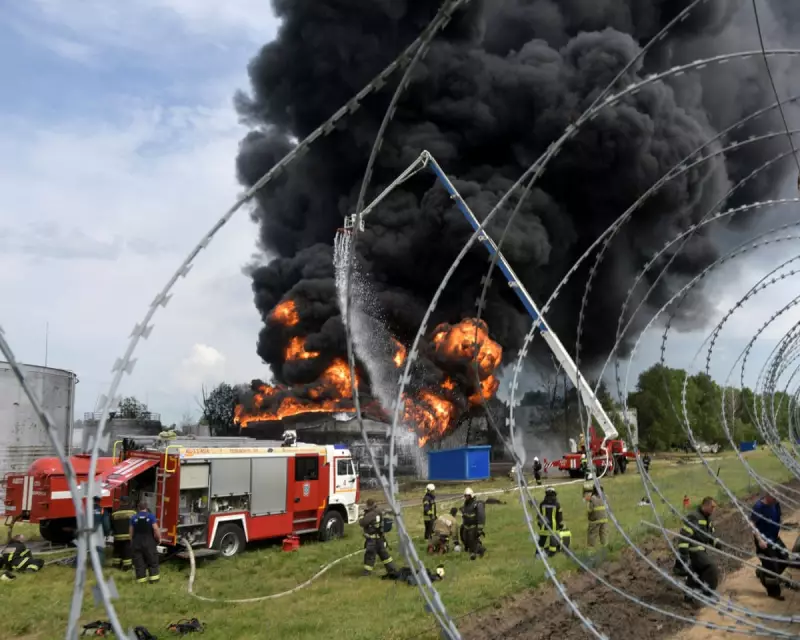
Kremlin Fortifies Homeland as Ukraine War Drags On
Russia has enacted a series of wide-ranging laws designed to strengthen its domestic defences against Ukrainian drone strikes and sabotage operations. This legislative push underscores the Kremlin's anticipation of a prolonged conflict, nearly four years after Vladimir Putin initiated a full-scale invasion expected to last mere weeks.
The new measures come as Ukrainian drones strike Russian energy facilities almost daily, and operatives have carried out assassinations of high-profile military figures deep inside the country. These attacks have exposed vulnerabilities Moscow once considered far from the front lines.
New Measures to Protect Critical Infrastructure
In a significant move, President Vladimir Putin quietly authorised a decree earlier this month allowing for the deployment of reservists to guard key sites. This includes refineries, which have been repeatedly hit by Ukrainian drones, contributing to a rise in domestic fuel prices.
The measure enables the Kremlin to tap into a pool of roughly 2 million people without announcing a fresh mobilisation, a step that has previously proven deeply unpopular. These reservists undergo annual training and receive a modest payment but have largely been exempt from fighting in Ukraine unless they volunteered.
While Russian authorities have already deployed dense air defence networks around Putin's Valdai residence and elite neighbourhoods like Rublyovka, they have struggled to adequately defend the hundreds of oil refineries and war-related industrial plants scattered across the nation.
Digital Disruption and Harsher Penalties
Alongside physical reinforcements, new regulations aim to electronically disrupt Ukrainian drone operations. Since 10 November, a so-called sim card "cooling-off period" has been in effect, automatically blocking mobile connections for Russians returning from abroad for 24 hours.
This tactic is intended to prevent drones from leveraging civilian mobile networks for telemetry and control signals. The restriction has caused confusion and chaos, with residents in border regions like Pskov also complaining of mistakenly frozen connections.
The legislative package also introduces dramatically harsher penalties for sabotage. Putin recently signed legislation imposing life sentences for anyone involving minors in acts of sabotage and lowered the age of criminal responsibility for such offences from 18 to 14.
Since the invasion began, Russian courts have convicted at least 158 minors on terrorism- and sabotage-related charges. Kirill Kabanov, a member of the presidential human rights council, defended the possibility of jailing minors as a "necessary measure for the current moment, given that we are a country at war."
Preparing the Nation for a Long Conflict
Analysts interpret these laws as a fresh layer of state interference, tightening control and pushing for deeper mobilisation of Russian citizens. Andrei Kolesnikov, an independent political expert in Moscow, stated that "Russia is acclimating its population to a prolonged semi-military existence and urging people to brace for greater sacrifices as the war drags on."
This effort to foster a mood of sacrifice is reflected in state-controlled polling, with a recent survey claiming nearly 70% of Russians were ready to "tighten their belts to defend their country." Kolesnikov argues this messaging prepares society for a worsening economic outlook as Russia's economy stagnates under Western sanctions.
Despite Kremlin claims of openness to negotiations, officials like Dmitry Medvedev have reiterated that the war will continue until Russia "reaches its goals." With the full-scale invasion soon to outlast Russia's fighting in the Second World War, the new laws signal a grim determination to endure a long and costly conflict.





